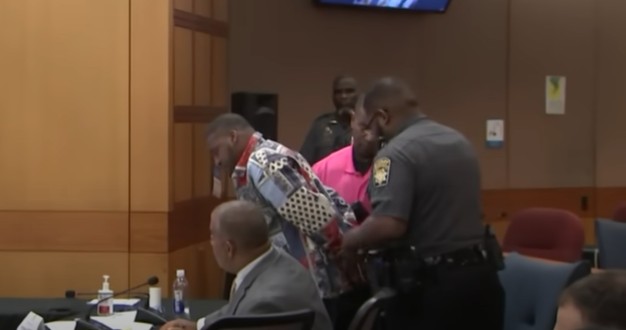WITH THE SWIPE OF MY PEN

KAMALA HARRIS IS THE DEMOCRATIC PRESIDENTIAL NOMINEE
BY ANONYMOUS EDITORIAL
Kamala Harris has made comments suggesting that, with a simple signature, she can initiate significant legal consequences for individuals accused of minor offenses. Such remarks raise concerns about the power and discretion that prosecutors wield, which can drastically alter lives—leading to job loss, damage to community ties, and lasting impacts from having an arrest record. These statements can come across as dismissive of the serious consequences faced by those caught in the legal system, particularly when prosecutorial power is misused.
Harris compounds these concerns by employing a sarcastic and taunting tone when discussing her authority. While expressing her absolute power as a prosecutor is troubling in itself, the caustic nature of her delivery can overshadow her message and leave a negative impression, suggesting a lack of empathy for those affected by her decisions. She is basically saying that “if you cross me, I’ll screw you over whether you’ve commit a crime or not – doesn’t matter.”
In recent years, various prosecutors, including Joe Biden, Juan Merchan, Alvin Bragg, Letitia James, and Fani Willis, have faced scrutiny for their use of prosecutorial discretion, particularly in high-profile cases involving Donald Trump.
Fani Willis, in particular, has faced criticism for accepting significant funds from the Department of Justice to manage her jail population. Critics argue that she refuses to be transparent about how these funds have been utilized, claiming that she “answers to no one,” raising serious questions about accountability in the judicial system.
Moreover, what is happening in Fulton County, Georgia, raises concerns about systemic racism within the legal system. Critics argue that the practice of incarcerating Black men—often without formal charges for years at a time—creates a pool of individuals that prosecutors can draw from as convenient scapegoats when needed.
This troubling dynamic may go unchecked because many of the jailers and prosecutors are also Black, leading to a lack of widespread outrage within the community. If any other demographic were subjected to such treatment—having their rights stripped away and being left to languish in jail without charges—there would likely be a significant public outcry and a civil war.
The Fulton County YSL Record Label trial has drawn attention for holding young men in their twenties and thirties accountable for agreements they signed as teenagers, sometimes up to ten years ago. While listening to Antonio Sledge, a young man known as Mounk Tounk this week, it became evident that his comprehension skill is at a third or fourth grade reading level and he’s an adult now. He was arrested in court because his attorney had little interest in the Black man’s defense and because Mounk Tounk can’t read. He can’t read and he certainly couldn’t read back then when he signed that agreement. Most of the other men accused in this RICO case are also illiterate. The entire charade is racist on its face.

Many have testified that they would have agreed to anything and signed any document to secure their own release, indicating that they likely did not fully understand the implications of the plea agreements they signed years ago. Now, years later, these individuals are facing serious consequences based on documents they could not comprehend at the time they signed them and still don’t read well enough today to understand the documents today. And it was very clear that members of the prosecution, carry such disdain for the accused that they create case strategy on the fly and have spent years hobbling defense lawyers by hiding discovery from defense attorneys. There have been legal justifications for a mistrial but Fani Willis has been able to convince each judge (case is on its third judge) that a mistrial is absolutely forbidden as far as she’s concerned.
You have to wonder what Willis has on Glanville and Whitaker that they are so willing to continue denying a mistrial when it is clear to everyone that it is the only possible legitimate, just remedy.
Additionally, there are alarming allegations regarding the Fulton County Court’s treatment of hundreds of Black men who have been denied their constitutional right to a speedy trial. Some have reportedly been incarcerated for up to five years without ever being formally charged. This situation raises concerns about the humane treatment of Black individuals within the justice system in general and in the Fulton County Georgia jails specifically and underscores the need for reform.
Furthermore, reports suggest that Willis paid a personal associate (who turned out to be her lover), almost a million dollars to do work for which he was unqualified. This raises further questions about her priorities and the allocation of resources within her office.
The exercise of prosecutorial discretion by figures like Harris and Willis prompts essential discussions about accountability, fairness, and the long-term impacts of legal decisions on marginalized communities. Addressing these concerns is crucial to ensuring that the justice system upholds its intended purpose without perpetuating harm.



